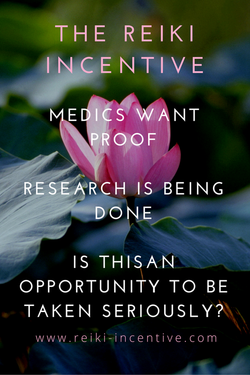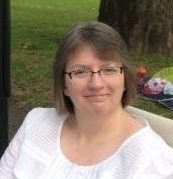
Following my last blog post, this was one of the main questions people had about Reiki and research, so I'll do my best to answer.... From a modern perspective, we can look back and see that the discipline of medicine has a chequered history, where ancient medical theories led to the widespread practice of remedies such as leaching and blood letting. These and other practices did no good whatsoever and were inherently dangerous. If a patient survived this kind of treatment it was in spite of rather than because of it, although neither doctors nor patients had any way of knowing this. So the medical profession generally require evidence of both the safety and effectiveness of treatments so we can be confident that they have a chance of working and to ensure patient safety – do no harm. It was from the period of the enlightenment onwards that medical practitioners began to question the old theories. Since then they have worked to move their profession towards a method of working which involves the questioning of their practice, the comparison of treatments against placebo or against other treatments to test if they work and which ones work the safest and best. In the mid 20th century the movement of evidence based medicine really took hold. This has been defined as “the process of systematically reviewing, appraising and using clinical research findings to aid the delivery of optimum clinical care to patient¹.” This has been really important for medicine and for society. Many medical treatments have the potential to do very serious harm indeed. Surgical intervention and drug treatments can have very serious consequences and side effects. They can and should only be administered if medics have as much certainty as possible that they have a good chance of being effective and that any side effects or risks are minimised and outweighed by the possible benefit of the treatment. Similarly with less invasive treatments, it is important to know that time, money and expectation is not being wasted on treatments which are not of any real benefit. With this approach we have moved as a society to a place where many diseases have been eradicated and many more can be treated. This does not mean however that medicine has all the answers. There is still much to learn, particularly about how to help people manage and live with chronic illness. It is a personal view of mine that this is where disciplines such as Reiki may have a very real place. Evidence based medicine allows for the possibility that new or different approaches, tested by research can and should be integrated into conventional medical care. Research and clinical trials into the benefit of Reiki are beginning to be done. I will post about this next week. It is against the background outlined above that most medics and others in hospitals consider all forms of treatment. Working in a scientific discipline they might look at Reiki and need to know why they should consider introducing it. In the same way that they would look at any other new form of treatment, they want to know what research has been done to demonstrate its value. I will post next time about what sort of research into the benefits of Reiki has been done so far and what this research is beginning to show. Having an understanding of what research has and has not been done, or where Reiki has been shown to be effective or ineffective can help us to promote ourselves ethically, realistically and potentially help many more people with Reiki in places where it would not otherwise go. It is a fine line to tread. Reiki as we know is experiential not scientific. Being holistic and spiritual in nature it is not possible to predict or direct how and in what ways people find it beneficial. This can make it a challenge to research and can impact on how we interpret the results of very specific and tightly controlled trials. But research into the benefits of Reiki can be and is being done. It's an interesting and exciting time for Reiki! I hope that The Reiki Incentive will ultimately help practitioners to learn enough about how to find and evaluate research to be able to discuss these issues with confidence. If you have any comments, suggestions or anything to add please comment in the blog. Reference. 1. Rosenberg W, Donald A. “Evidence based medicine: an approach to clinical problem-solving.” BMJ 1995; 310: 1122–1126.
0 Comments
|
Author
Angela established the Reiki Incentive for Reiki practitioners who want to see Reiki more widely accepted and to see it reach new people. She enjoys sharing her passion for authentic practice as well as research into the benefits of this wonderful therapy. Archives
May 2018
Categories
All
|

 RSS Feed
RSS Feed
